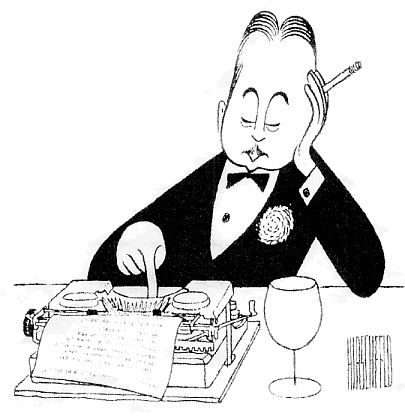“Old Black Tillie lived in the dell,
Heigh-ho with a rum-tum-tum!
Something, something, something like a lot of hell,
Heigh-ho with a rum-tum-tum!
She wasn’t very something and she wasn’t very fat
But—”
“VICTOR HUGO’S DEATH”
M.K.C.—Is it true that Victor Hugo did not die but is still living in a little shack in Colorado?
“I’M SORRY THAT I SPELT THE WORD”
J.R.A.—Can anyone help me out by furnishing the last three words to the following stanza which I learned in school and of which I have forgotten the last three words, thereby driving myself crazy?
“‘I’m sorry that I spelt the word,
I hate to go above you,
Because—’ the brown eyes lower fell,
‘Because, you see, —– —– —–.'”
“GOD’S IN HIS HEAVEN”
J.A.E.—Where did Mark Twain write the following?
“God’s in his heaven:
All’s right with the world.”
“SHE DWELT BESIDE”
N.K.Y.—Can someone locate this for me and tell the author?
“She dwelt among untrodden ways,
Beside the springs of Dove,
To me she gave sweet Charity,
But greater far is Love.”
“THE GOLDEN WEDDING”
K.L.F.—Who wrote the following and what does it mean?
“Oh, de golden wedding,
Oh, de golden wedding,
Oh, de golden wedding,
De golden, golden wedding!”
ANSWERS
“WHEN GRANDMA WAS A GIRL”
LUTHER F. NEAM, Flushing, L.I.—The poem asked for by “E.J.K.” was recited at a Free Soil riot in Ashburg, Kansas, in July, 1850. It was entitled, “And That’s the Way They Did It When Grandma Was a Girl,” and was written by Bishop Leander B. Rizzard. The last line runs:
“And that’s they way they did it, when Grandma was a girl.”
Others who answered this query were: Lillian W. East, of Albany; Martin B. Forsch, New York City, and Henry Cabot Lodge, Nahant.
“LET US THEN BE UP AND DOING”
Roger F. Nilkette, Presto, N.J.—Replying to the query in your last issue concerning the origin of the lines:
“Let us then be up and doing,
With a heart for any fate.
Still achieving, still pursuing,
Learn to labor and to wait.”
I remember hearing these lines read at a gathering in the Second Baptist Church of Presto, N.J., when I was a young man, by the Reverend Harley N. Ankle. It was said at the time among his parishioners that he himself wrote them and on being questioned on the matter he did not deny it, simply smiling and saying, “I’m glad if you liked them.” They were henceforth known in Presto as “Dr. Ankle’s verse” and were set to music and sung at his funeral.

